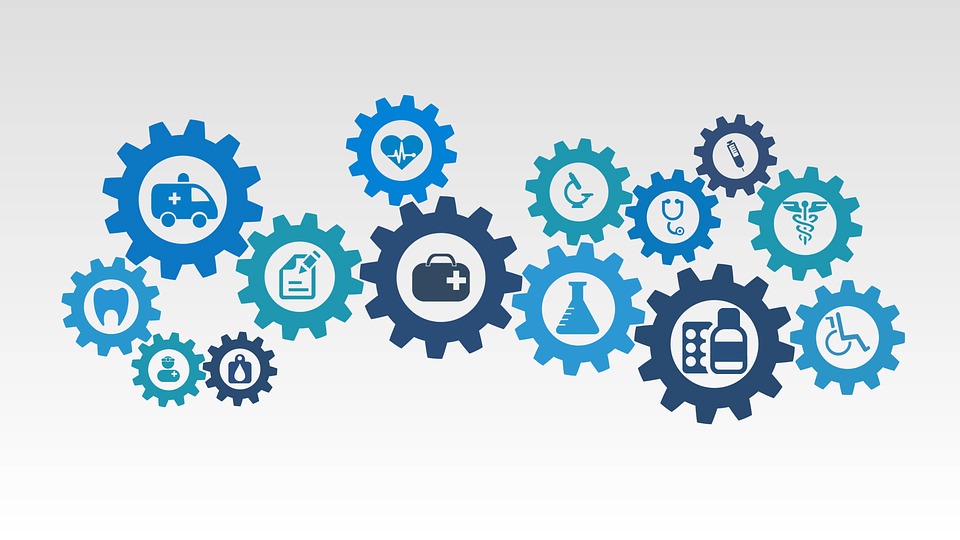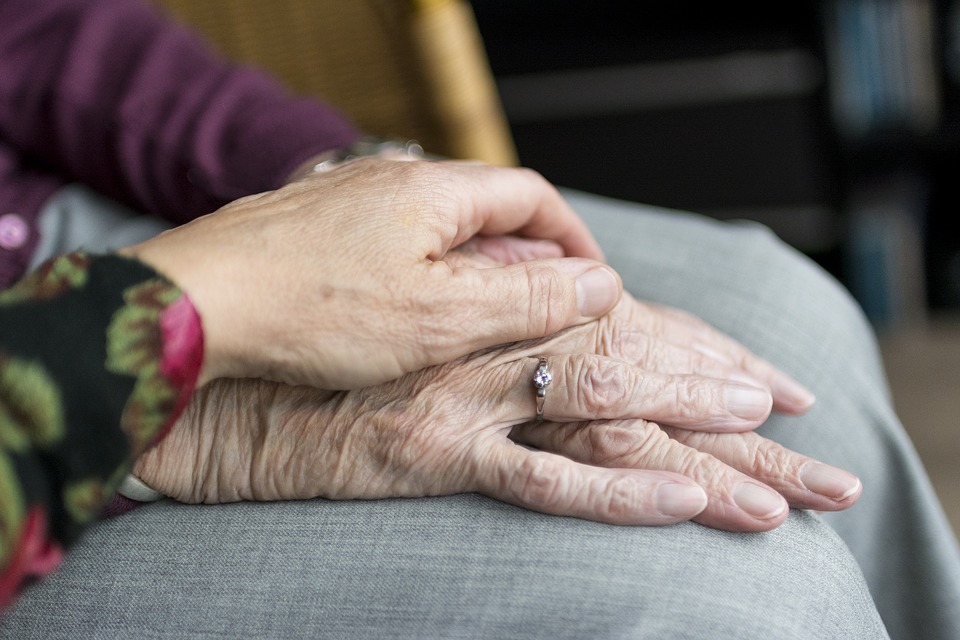Access to good healthcare is vital so shouldn't it be available to everyone regardless of their financial situation? But can anything ever truly be 'free'? There's a range of different ways to fund healthcare but which is fairest? Let's dig deeper...
Should healthcare | be free?
If you mostly chose A:
You prefer a healthcare system that favours giving everyone access to healthcare (also known as universal health care). Your healthcare system would probably look a lot like the National Health Service in the UK, where healthcare is paid for through taxes, and is mostly free to patients. It could also be paid for through mandatory insurance whereby citizens don’t get to choose how much they spend on healthcare, instead, it depends on how much they earn. But when they do get sick, they don’t have to pay extra, no matter how much healthcare they need. This collective payment system is usually cheaper overall, but it does sometimes mean that expensive treatments aren’t affordable.

If you chose mostly B:
You prefer a private healthcare system, like those in the USA or Switzerland. In these countries, patients pay for healthcare only when they need it, although most take out some kind of private insurance, in case they do get sick. The advantage of this system is that people get to choose how much they spend on health compared to other things, so healthy people can spend more on hobbies, travel or education, for example. There are also no national limits on what is affordable, so people with the money to pay for it can access the very latest treatments. The disadvantage is that the costs can be very high if you don’t have insurance. Even with insurance, costs are higher in non-mandatory private systems because fewer healthy people take out insurance. Healthy people paying into the health system can help make healthcare cheaper for people who need it. The result of this is that it is hard for poor people to get treatment they need, and health inequality is worse in these countries.
A world tour of health funding
Most countries have a mixed model of funding healthcare for their citizens. However, generally, they can fall into one of the four systems explained below…
- Universal health coverage through general taxation
- This is a model that is famously adopted by the UK’s National Health Service (NHS) which ensures that ‘all people and communities can receive the health services they need without financial hardship’ (World Health Organisation, 2018). Although the majority of funding for the NHS comes from income taxes, you don’t have to be in work to be able to access NHS healthcare and, in this way, it is free at point of use. For some items such as prescriptions or dental procedures, there are additional charges, but these can be waived for certain groups. For example, you’re entitled to free prescriptions if you’re over 60 or under 16, among other reasons. This is in place to remove any potential barriers to care. The main limitation of this health care funding model is that it cannot provide every medical treatment for everyone. This particularly affects the newest treatments, which are often very expensive. In the UK, there is a body in place called the National Institute for Health and Care Excellence (NICE) which determines whether new treatments are cost-effective and therefore worth spending money on.
- Social insurance
- This is a common model of health funding adopted by most European countries and it can also provide universal health coverage by providing health care for all, regardless of personal income. In this system, every citizen buys a mandatory health insurance scheme, usually tied to their employment. The premium they pay depends on their income. By making insurance mandatory, healthy people have to buy insurance, pooling risk and making premiums more affordable for people with existing health problems. Those who can’t afford to pay (for example, those who are unemployed) are still enrolled and therefore able to access healthcare. Similar to UHC (see section above), there are limitations in the medical treatments that can be provided within this model of health funding, and organisations like NICE also exist in these countries. The key difference between the social insurance model and UHC is that the more you pay in can affect the quality of care you receive. So you might have shorter waiting times, for example, if you pay for a more expensive insurance scheme. In Germany, for example, those earning over an upper-income threshold (~EUR 60,000) can opt to purchase private insurance and gain access to a wider range of services and treatments.
- Private insurance
- The private insurance model of healthcare funding is primarily used in the United States and Switzerland, although you can pay into similar schemes in other countries - including the UK - should you choose to. Unlike social insurance, private insurance is not linked to your earnings in the form of a tax or premium cap. You have to take out a policy as an individual, and your premium will depend on your health needs rather than your ability to pay. Unlike UHC and social insurance models, there are no limits to the kind of advanced and new medical treatments available within the private insurance system. But in reality, even with a comprehensive private policy, many of these treatments would be far too expensive for most patients to afford. Overall, within this model, healthcare access is based on what a person can afford rather than what they need. For some low-income people, families, pregnant women, elderly and disabled people, there is support with medical costs within government programs (such as US programmes Medicaid and ‘Obamacare’). However, there are still some people who struggle to qualify for this support and consequently struggle to afford any kind of medical cover.
- Out of pocket payments
- This is the model which tends to be in place when a country does not have a national funding structure, and as a result, it’s usually found in very low-income countries such as parts of sub-Saharan Africa. In other words, when you need to see a doctor, you have to pay for it yourself, without any kind of insurance or government support. This means there can be a lot of uncertainty for those who are unwell and many people are left in a vulnerable situation not knowing how they will cover the costs of care. In these countries, people frequently go without healthcare because they can’t afford it, although global initiatives are now seeking to bring UHC to these countries.
The NHS in numbers
The UK National Health Service (NHS) celebrates its 70th anniversary in 2018. Take a look at this animation to see how it has changed over time.
If you’re ill or get badly injured in Britain, the chances are that you’ll seek help from the National Health Service (NHS for short). You’ll get treated by medical staff for free at your doctor’s surgery or at the hospital, and you won’t be issued with a hefty bill afterwards.
The NHS has existed for 70 years and Prof. Hordern says that it has a unique place in British society, even if people aren’t quite sure about how it works.
Taxing times
Prof. Hordern points out first of all that healthcare is not free in every sense in the UK but paid for by taxes.
'We all pay for it,' he explains. 'Even those of us who don’t pay income tax still contribute towards healthcare through VAT and other taxes.' VAT stands for value added tax - it is a small amount of the price of many purchases and goes to the government.
He suggests that some people might even be willing to pay more taxes to fund healthcare, which is unsurprisingly an expensive undertaking. This is because in the UK, people feel very strongly about the importance of the NHS.
'I think it’s peculiarly British,' he says. 'I think there’s a sense of national mission and vision around the NHS. It came out of the Second World War - but the founders never imagined the level of care now being provided.'

Part of the problem with the stretched NHS budget is that the UK's population is growing and people are living longer partly because of the quality of care they receive from the NHS throughout their lives. That means the NHS and society at large have more people to look after and many more people in their old age who need care.
Prof. Hordern says that lots of universities and other organisations now work with the NHS to do research into expensive treatments for illnesses and conditions, and this all costs money. He adds that these treatments might actually save us all money eventually but there isn’t any way to know that before the research starts.
Responsibilities and costs
Although NHS healthcare might be free financially at the point of use, it isn’t free in other ways. For example, Prof. Hordern says that patients ought to use the shared resource of the NHS responsibly - we aren’t just free to do what we like. A good example is that people who have received an organ transplant should live in a way which honours the gift they have received, or if you make a doctor’s appointment you should make sure that you really need it and turn up to it on time.
He also says that the NHS is not free from personal cost for health service staff because of the long hours they work and the difficult things they do. That means that they - and their families - may suffer personal stress and strain. This is similar in some ways to the strains placed on armed service personnel and their families.
Private healthcare
Of course, people can also access health care outside the NHS but they would have to pay for it directly, whether through insurance or by finding the money afterwards. 'A good number of consultants work in the private sector as well as the public,' says Prof. Hordern. 'Some elements of private care are clearly very effective and good.'
He adds that there is considerable waste in the NHS, because it is hard for the people who work there both to be aware of how much things cost and to take tough decisions. If a hospital or a surgery is run as a business, it is possible - though by no means certain - that they will use money better.
The future of healthcare
What Prof. Hordern thinks is important is the way people view health and healthcare in the 21st century, and how they think about other national values.
'How do we think about our healthcare, as part of what identifies us and marks us as a nation?' he asks. 'How do we care for the most vulnerable in our society, especially the elderly?' With a large elderly population, it’s possible that older people will be suffering both psychologically and physically from loneliness and Prof. Hordern thinks that this is a huge health problem.

'The NHS isn’t set up to sort out loneliness,' he points out. He thinks that friends, family, neighbours and religious communities have a bigger role to play in supporting people who are ill or frail. If people aren’t seriously sick they don’t need to be in a hospital bed, and they could stay in their own homes if they had someone to look after them - but this can be difficult in the modern world, especially with the serious strain on public and private providers of social care at the moment.
'More and more of us are working, often long hours and in unstable employment,' he says. 'Life is demanding and expensive. So how do we build links in society? That’s an element of our lives which we have to work hard at renewing if we are to avoid social death for many people. In other words, a death before death, of isolation, of loneliness, of falling through the cracks.'
What health and care needs do you think we as a society should spend our money on? Would you be happy to pay for medical treatment? Do you think local communities could do more to take care of their most vulnerable members?
What changes could we make?
Dr. Marco Springmann discusses a new report from the Oxford Martin Programme on the Future of Food. It shows that a global switch to diets that rely more on fruit and vegetables than meat could save lives, reduce greenhouse gas emissions, lead to healthcare-related savings and avoid climate damages of $1.5 trillion (US). Would you be willing to make these changes?